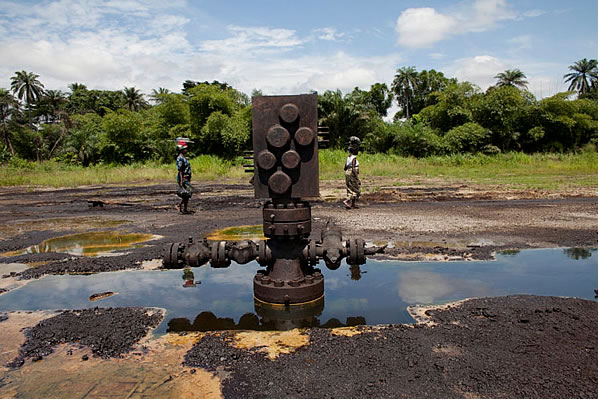Tinubu Orders AGF, Lokpobiri To End $1.3bn Oil Block Dispute
President Bola Tinubu has ordered the Attorney-General of the Federation, Lateef Fagbemi (SAN), Minister of State for Petroleum Resources, Heineken Lokpobiri, and other agencies of government to clear all court cases around the $1.3bn deepwater OPL 245 oil block located in southern Niger Delta.
Other agencies that also received the order include the Economic and Financial Crimes Commission, Nigerian Upstream Petroleum Regulatory Commission and Nigerian National Petroleum Company Limited.
Lokpobiri disclosed this in Abuja on Wednesday, as he revealed that parties in the deal were currently negotiating to end the over 28 years crisis and litigations surrounding the prolific oil block in the next one month.
The Malabu OPL 245 deal and subsequent litigation with the Nigerian government is a complex and long-standing saga involving allegations of corruption, fraud, and legal battles.
The oil block in question, OPL 245, is considered one of Nigeria’s most prolific oil blocks. In 1998, Malabu Oil and Gas, a company with links to former Nigerian Minister of Petroleum, Dan Etete, acquired the block for $2m.
In 2001, the Federal Government under former President Olusegun Obasanjo revoked Malabu’s license due to “questionable practices.”
In 2006, Malabu challenged the revocation in court, eventually reaching an out-of-court settlement with the government under former President Umaru Yar’Adua.
“So we are talking to Eni and Shell, and saying let’s sit down and see how we can resolve all the problems. We have taken you to court on multiple occasions, you have also taken us to court, but let’s see how we can resolve these problems,” the minister stated.
He noted that at the last meeting, “we said parties should go on with negotiations and within one month we convene and see how we will be able to sort out all the issues so that the investment can continue.”
Asked to state the parties of the Federal Government interfacing with Eni and Shell, he replied, “The Attorney-General of the Federation is the one leading the delegation. We have the NUPRC, EFCC, NNPC, and the Minister of State for Petroleum.
“So we are very transparent about this process. We have the full government in resolving this matter. Everything is being done transparently. This process has nothing to benefit the President as an individual.
“But as President and Commander-in-Chief, his interest is the welfare of Nigerians and to attract requisite investments to the sector so that Nigerians can benefit from this God-given natural resources.
“And this block has been embroiled in one form of litigation or the other for 28 years. It doesn’t make any sense for us to continue dragging the case, because again, the world is moving towards the abandonment of fossil fuels.”
Lokpobiri stated that if Nigeria fails to get the investments in the block now, the country would never be able to attract capital to invest, because it would require billions of dollars.
The block had witnessed international cases as investigations and legal cases were also opened in the United States, United Kingdom, Italy, and Netherlands.
On the outcomes, it was reported that in 2018, the US Department of Justice closed its investigation without charges. In 2020, the US Securities and Exchange Commission closed its investigation without finding evidence of wrongdoing.
In 2021, the Italian court acquitted Eni, Shell, and all defendants of corruption charges. In 2022, Nigeria dropped its $1.1bn suit against Eni and lost its $1.7bn claim against JP Morgan terkait with the deal.
In 2023, the former Attorney-General, Abubakar Malami, advised Buhari to terminate further litigation due to low chances of success and potential economic benefits of developing the block.
The Malabu OPL 245 deal remains controversial, with lingering questions about corruption and the legality of the transactions. The Nigerian government is considering ending further litigation and potentially allowing development of the block to proceed.
The Malabu OPL 245 case highlights the challenges of corruption in the extractive industries and the complexities of international legal battles involving multiple jurisdictions.





